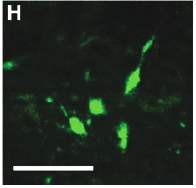Original post: (deleted from progressohio)
http://www.progressohio.org/page/community/post/averagejane/C2Vp/commentary#comments
Money for Tortured Postpartum Depression? Reply
By NationOfGandhis Jan 21st 2009 at 11:15 pm EST (Updated Jan 21st 2009 at 11:15 pm EST)
The problem with continuing pregnancies beyond the mother's desire could lead to post partum depression. I am not a doctor but the money incentive is not a real psychological solice.
To wit:
There is conclusive evidence that stem cells produced during pregnancy remain with and affect the mother for years if not decades.
Stem cells are not innocuous, we know that. If they come from a relation that is resented as in rape, then the psychological indications must be taken into account.
No one is "for" abortion, we just want fairness and justice. For rape, justice is termination of the fetus.
Fetus worship is just that, when the science is completely ignored and ignorance prevails.
Sounds harsh and cold but faith does not cure reality. Science and religion can agree when they work in harmony and take ALL facts into consideration including the woman's psyche. This is one of those times.
"This is just what a team of researchers from Singapore have found and published in the journal Stem Cells. It’s well known in this literature that fetal cells can enter the blood of circulation during pregnancy and remain there for many years after birth."
"These cells can, just as regular stem cells, develop into different kinds of tissue, including bone marrow, liver an spleen cells. But whether these cells can cross the blood-brain barrier has been less certain.
see the story here:
http://brainethics.wordpress.com/2006/07/20/on-a-mothers-mind/
http://www.progressohio.org/page/community/post/averagejane/C2Vp/commentary#comments
Money for Tortured Postpartum Depression? Reply
By NationOfGandhis Jan 21st 2009 at 11:15 pm EST (Updated Jan 21st 2009 at 11:15 pm EST)
The problem with continuing pregnancies beyond the mother's desire could lead to post partum depression. I am not a doctor but the money incentive is not a real psychological solice.
To wit:
There is conclusive evidence that stem cells produced during pregnancy remain with and affect the mother for years if not decades.
Stem cells are not innocuous, we know that. If they come from a relation that is resented as in rape, then the psychological indications must be taken into account.
No one is "for" abortion, we just want fairness and justice. For rape, justice is termination of the fetus.
Fetus worship is just that, when the science is completely ignored and ignorance prevails.
Sounds harsh and cold but faith does not cure reality. Science and religion can agree when they work in harmony and take ALL facts into consideration including the woman's psyche. This is one of those times.
"This is just what a team of researchers from Singapore have found and published in the journal Stem Cells. It’s well known in this literature that fetal cells can enter the blood of circulation during pregnancy and remain there for many years after birth."
"These cells can, just as regular stem cells, develop into different kinds of tissue, including bone marrow, liver an spleen cells. But whether these cells can cross the blood-brain barrier has been less certain.
see the story here:
http://brainethics.wordpress.com/2006/07/20/on-a-mothers-mind/
On a mother’s mind
July 20, 2006 by tzramsoy
 Having a baby has a large impact on how we live our lives (trust me). But whereas men may react with amazement, wonder, even jealousy of being left aside, little actually happens to our bodies after birth. The changes that happen in women are far more obvious, not only during pregnancy but after birth also. The production of milk, and the possibility of conditional learning of milk production to the child’s crying is just one example of how body, brain and mind get tuned into caretaking.
Having a baby has a large impact on how we live our lives (trust me). But whereas men may react with amazement, wonder, even jealousy of being left aside, little actually happens to our bodies after birth. The changes that happen in women are far more obvious, not only during pregnancy but after birth also. The production of milk, and the possibility of conditional learning of milk production to the child’s crying is just one example of how body, brain and mind get tuned into caretaking.
 Thomas Zoëga Ramsøy (b. 1973 in Oslo, Norway) is a PhD in cognitive neuroscience / neuroimaging, originally trained in clinical and theoretical neuropsychology. His current work is at the
Thomas Zoëga Ramsøy (b. 1973 in Oslo, Norway) is a PhD in cognitive neuroscience / neuroimaging, originally trained in clinical and theoretical neuropsychology. His current work is at the 
No comments:
Post a Comment